How to prepare your home for a hurricane

This article originally published on Thumbtack and is syndicated by Cheapism.
It’s no secret a hurricane can cause structural (and financial) damage to your home. Some firms have already estimated that the damage caused by Hurricane Ida could total $15-$20 billion, according to the Wall Street Journal.
If you live in a hurricane zone or at-risk state, take steps now to protect your home and well-being. Here are a few ways you can prepare your home for a hurricane.
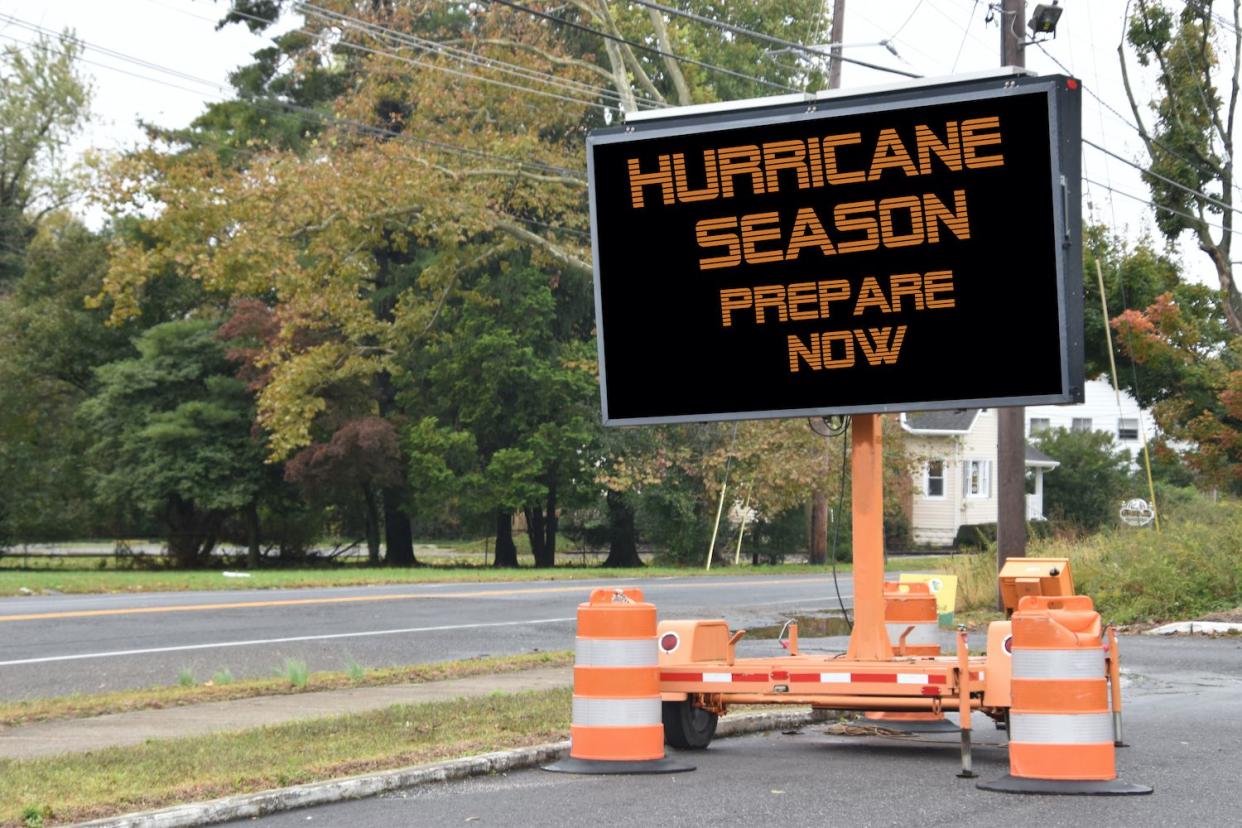
Hurricanes can occur in areas near the Atlantic and Pacific oceans. Even if you don’t live right on the coast, you could still be at risk. Hurricanes can impact areas that are more than 100 miles inland.
Here’s when certain regions enter hurricane season:
Eastern Pacific Hurricane Season: May 15-November 30
Atlantic Hurricane Season: June 1-November 30
Central Pacific Hurricane Season: June 1-November 30
Hurricanes tend to be the most active in September. However, the sooner you create a plan, the better.
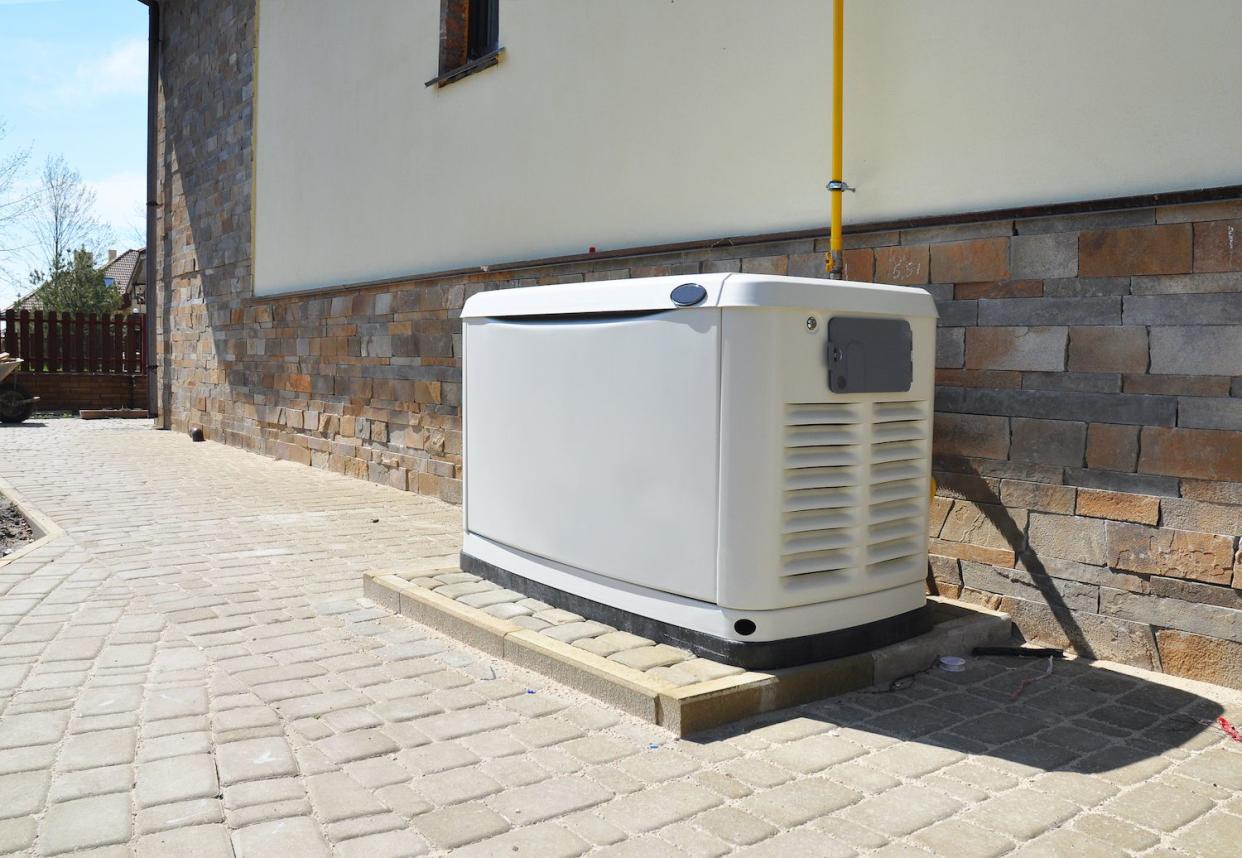
A strong hurricane can cause power outages. In the event your lights do go out, you’ll be grateful to have a generator as a backup power source. When operating a portable backup generator, keep the following tips in mind:
Don’t run the generator inside. Portable generators produce carbon monoxide (CO). The Centers for Disease Control and Prevention (CDC) advise that you place the generator more than 20 feet away from your home’s windows and doors. Also, make sure that your CO detectors are working properly.
Get the generator serviced before hurricane season. Inspect your generator for leaks and issues. If repairs are needed, get them done ASAP.
Make sure you have enough fuel. First, check with the appropriate municipality and fire codes to find out if there’s a limit on how much fuel you’re allowed to store. Keep the fuel away from sources of heat, and store it in a container located in a dry area that’s well ventilated.
Are you thinking about getting a stationary or standby generator instead? Remember that it may take a few weeks to install it, so plan ahead.
Related:How much do generators cost?
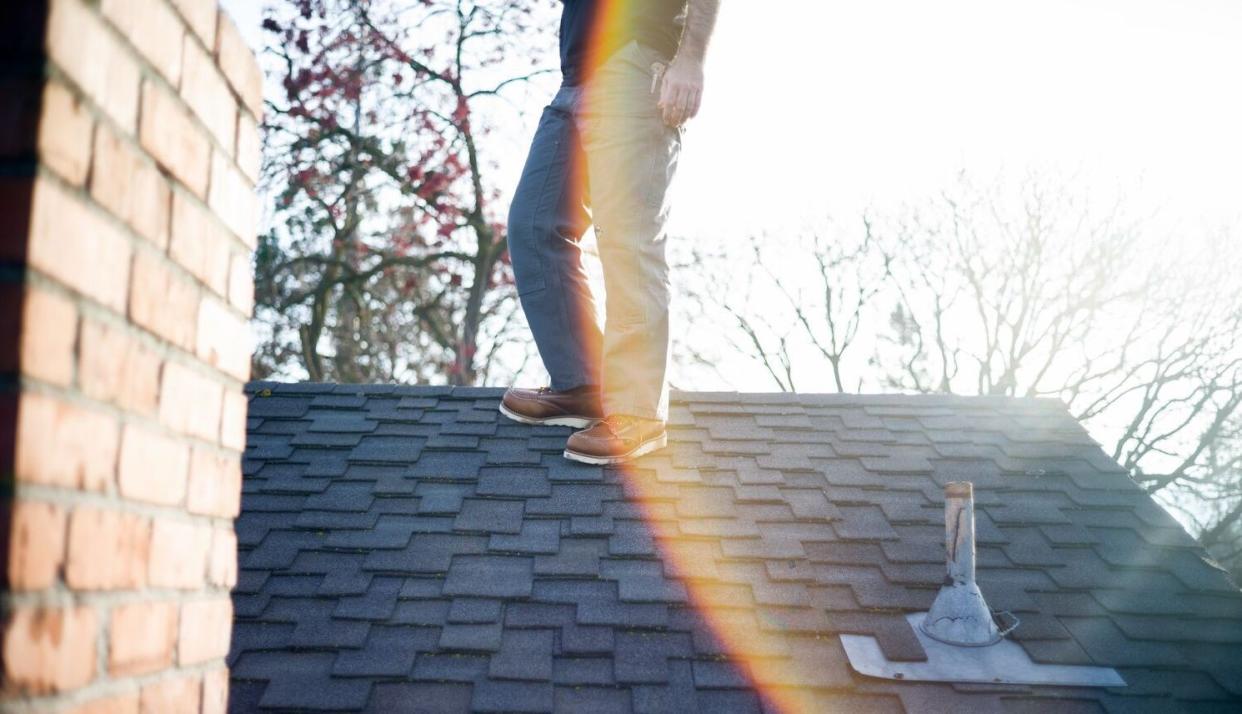
Inspect your roof for any loose, damaged or missing tiles and shingles. You should also find out if there are any holes and cracks. This step is imperative because water can seep through holes and weak spots in your roof.
Depending on your roof’s condition, your roofer may suggest replacing your shingles and other roofing materials, like the underlayment. They may also recommend reinforcing your roof with hurricane straps to help it withstand the wind.
Related: 13 best roof maintenance tips.
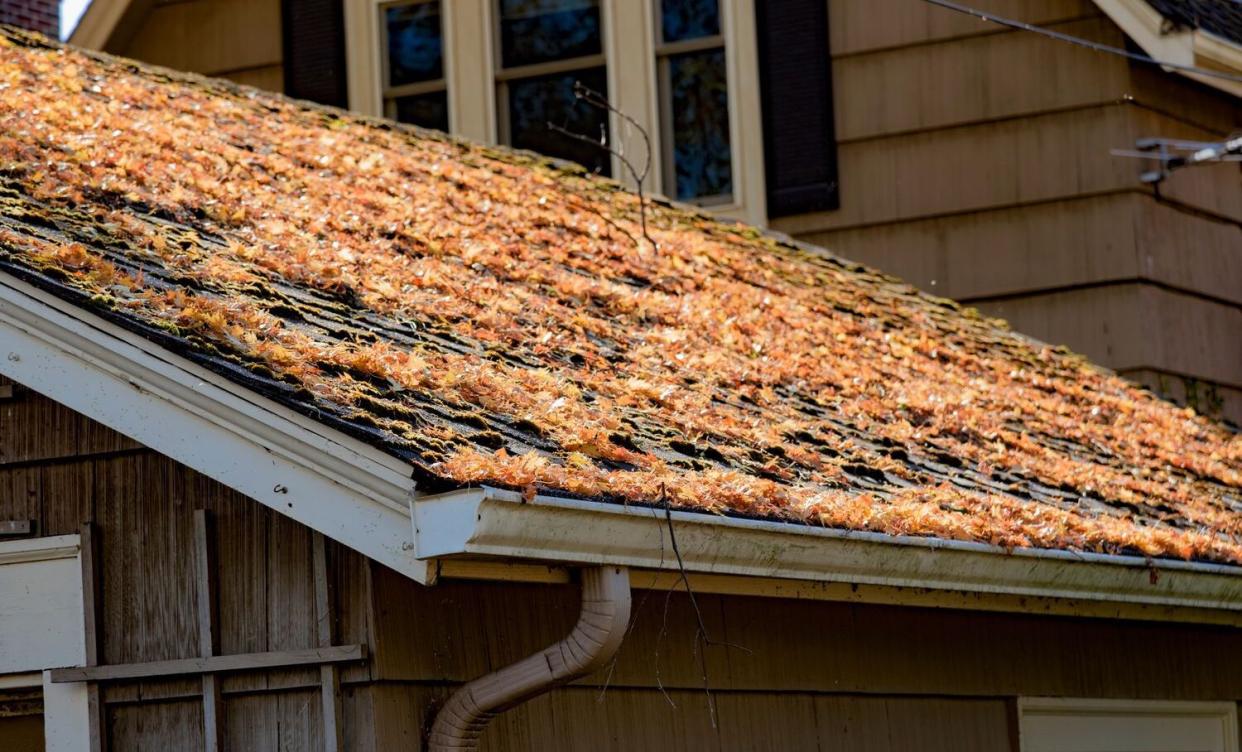
Remove dirt and debris from your home’s gutters before hurricane season. During heavy rains, obstructions in your gutters and downspouts could cause flooding.
If you’ve never cleaned your gutters before or if you’re afraid of heights (hey, no judgement), contact a gutter cleaning service. This is an important home maintenance task that needs to be done properly.
Tip: If you hire a pro to clean your gutters, find out if they can also inspect them for damage. Also, ask the pro if they can secure any loose gutters.
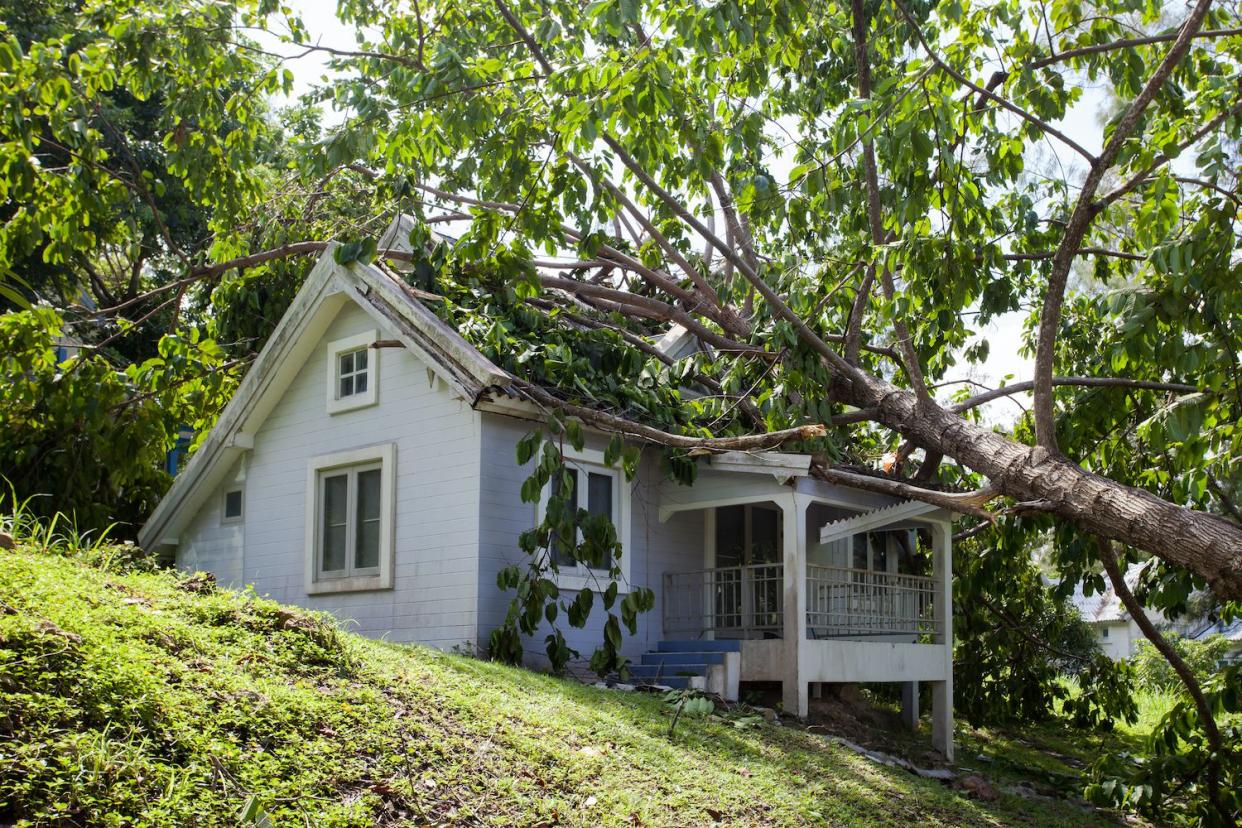
Strong hurricane winds can easily cause tree branches to fall and damage your home’s exterior and roof. If you have any trees with diseased or dying branches near your home, get rid of them before the storm.
However, don’t start hacking away just yet. Tree trimming and pruning is an art that requires an expert’s skills to ensure your tree grows healthy for years to come. Plus, this job can be dangerous for inexperienced homeowners.
Related: How much does tree trimming cost?

Consider investing in impact-resistant doors and windows with heavy-duty frames. When hurricane-proofing your doors, you might also want to install flashing (check your manufacturer’s guidelines first), as well as overlapping house wrap or building paper to protect the flashing. Add weather stripping on your exterior doors to keep water out.
Secure your windows with permanent storm shutters (sometimes called “hurricane shutters”) to prevent the rain from entering your home. When shopping for hurricane shutters, read the reviews and ratings. Conduct a bit of research to find out how they performed during testing to ensure that they’re high-quality.
Finally, you can board up your windows and doors for protection. The Red Cross recommends using pre-cut marine plywood that fits your doors and windows.
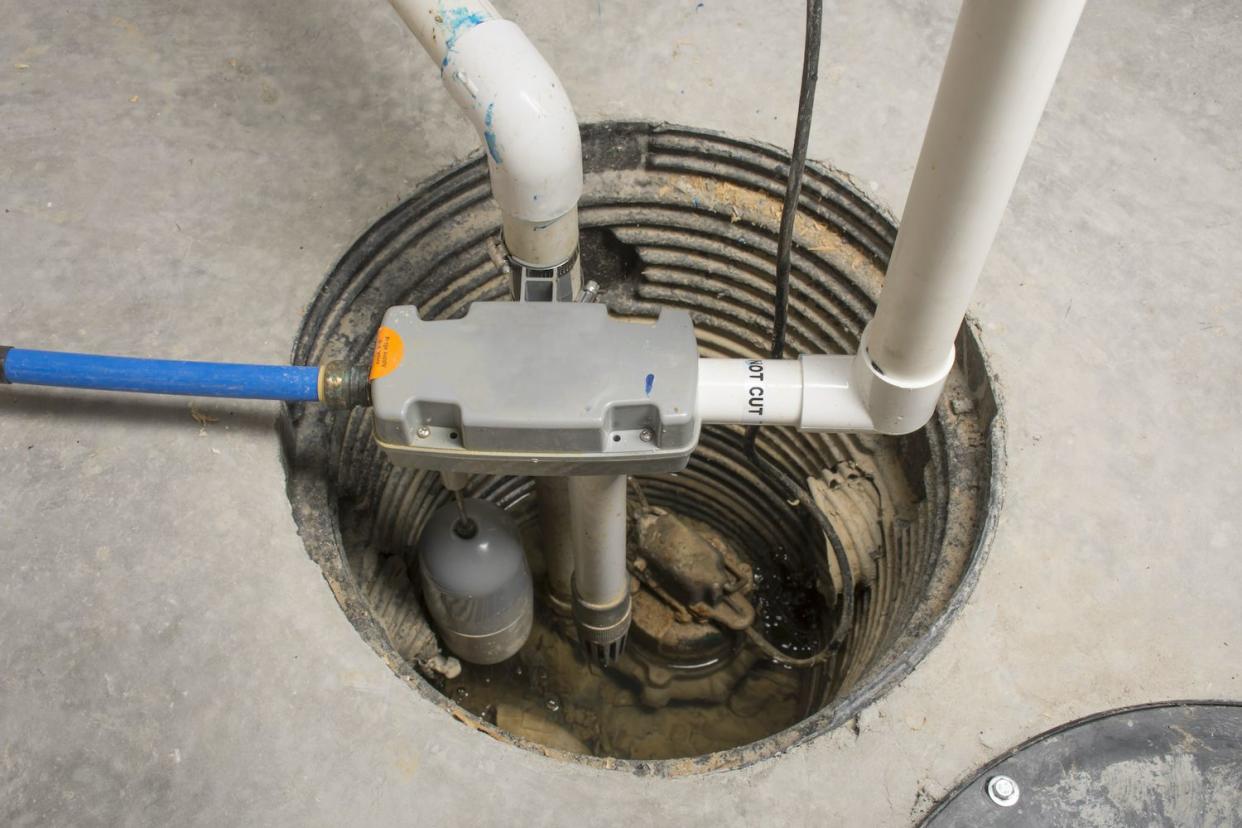
Flooding can cause severe water damage and mold in your basement. Here are some ways you can help prevent it:
Make sure your gutters and downspouts are diverting water away from your home’s foundation.
Seal all cracks and small holes that could allow water to seep into your basement’s interior.
Install a sump pump, which removes water from your basement when it begins to flood. If you already have a sump pump, make sure it’s working properly.
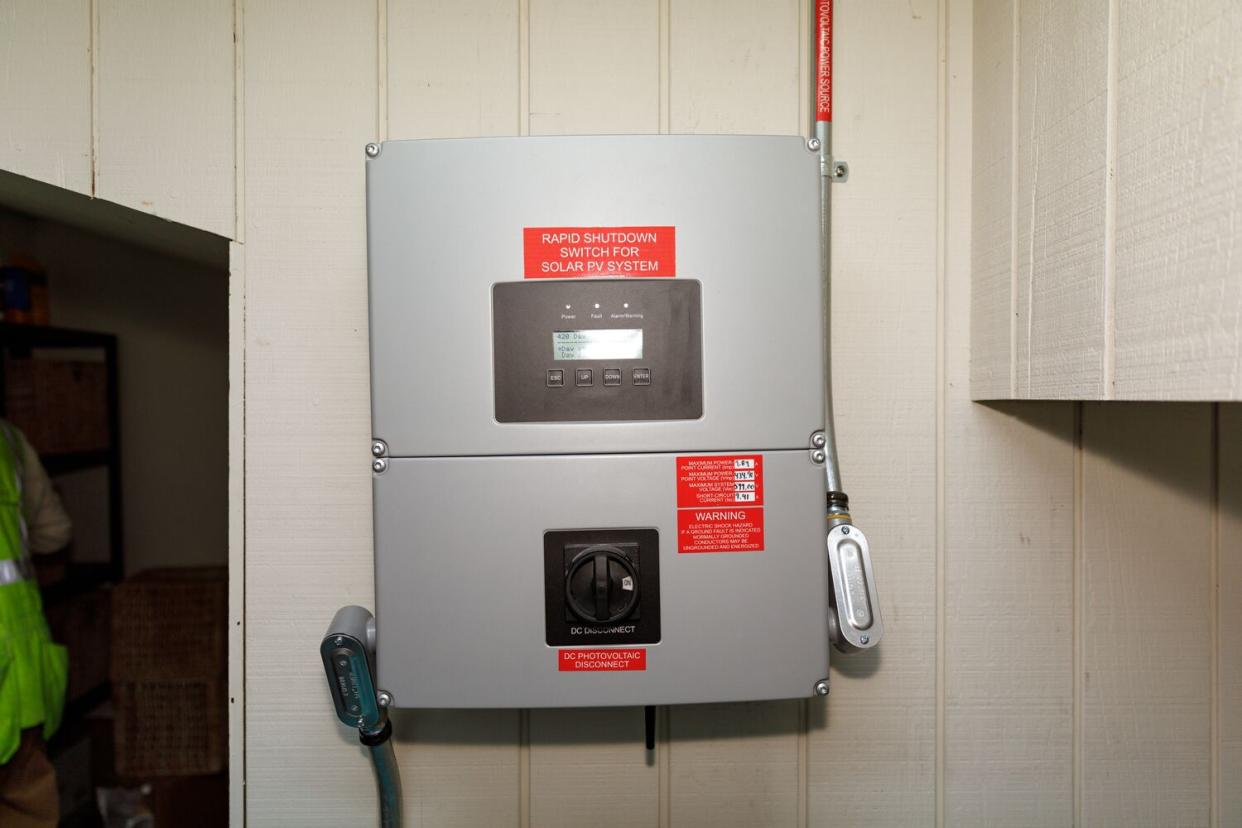
A hurricane can cause power outages and surges that can wreak havoc on your appliances and electronics. Fortunately, there are some steps you can take to avoid potential damage.
For example, unplug small appliances if you can. If you need to access your appliances during a hurricane or storm, consider purchasing a surge protector that can protect them during electricity spikes and surges.
Also, make sure you know how to turn off your home’s electricity. If flooding occurs or if the power lines are down, the CDC recommends switching off your power. Remember to also turn off the electricity in the event that you have to leave your home.
Because of the danger and risks involved, don’t attempt any electrical repairs or installations on your own.
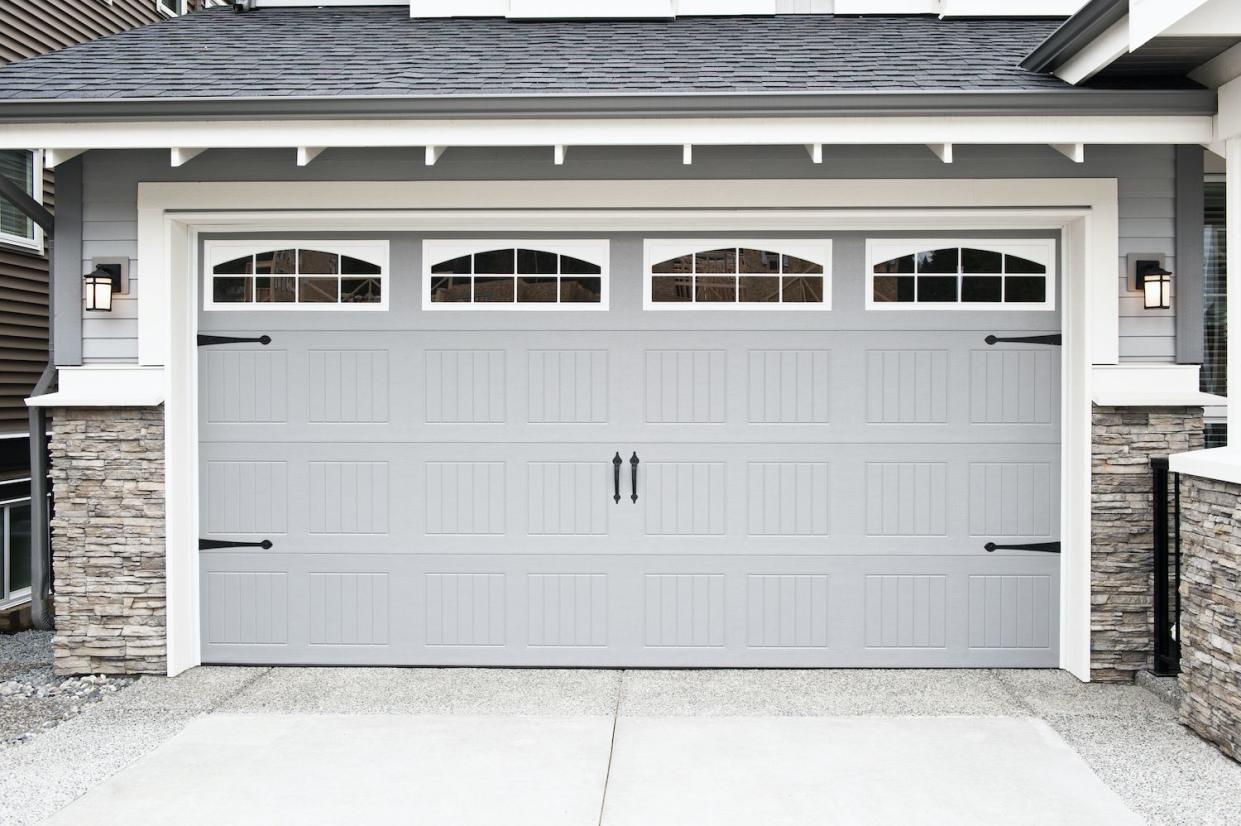
If hurricane winds enter your home via your garage doors, they could cause serious structural problems and flooding. Look for ways to reinforce your doors. For example, you may want to:
Install pressure-rated garage doors.
Install an impact-resistant covering for your existing garage door.
Add girts on the back of the door.
Buy a garage door reinforcement kit.
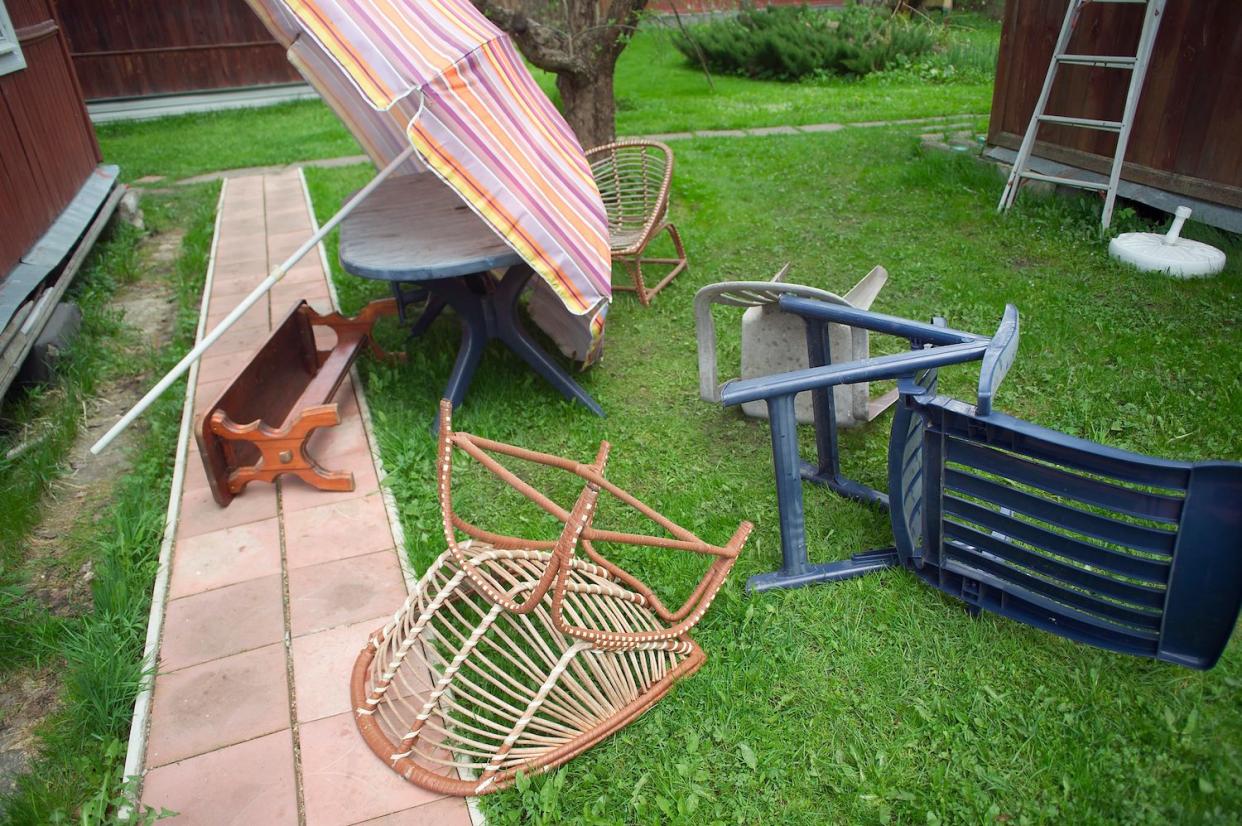
Go outside and inspect your front yard and backyard for potential obstructions. For example, strong winds can blow around potted plants, patio furniture, lawn equipment, grills, bicycles, propane tanks and trash cans — all of which could severely damage your home and nearby structures. Clear your yard and find a secure place indoors to store those items.
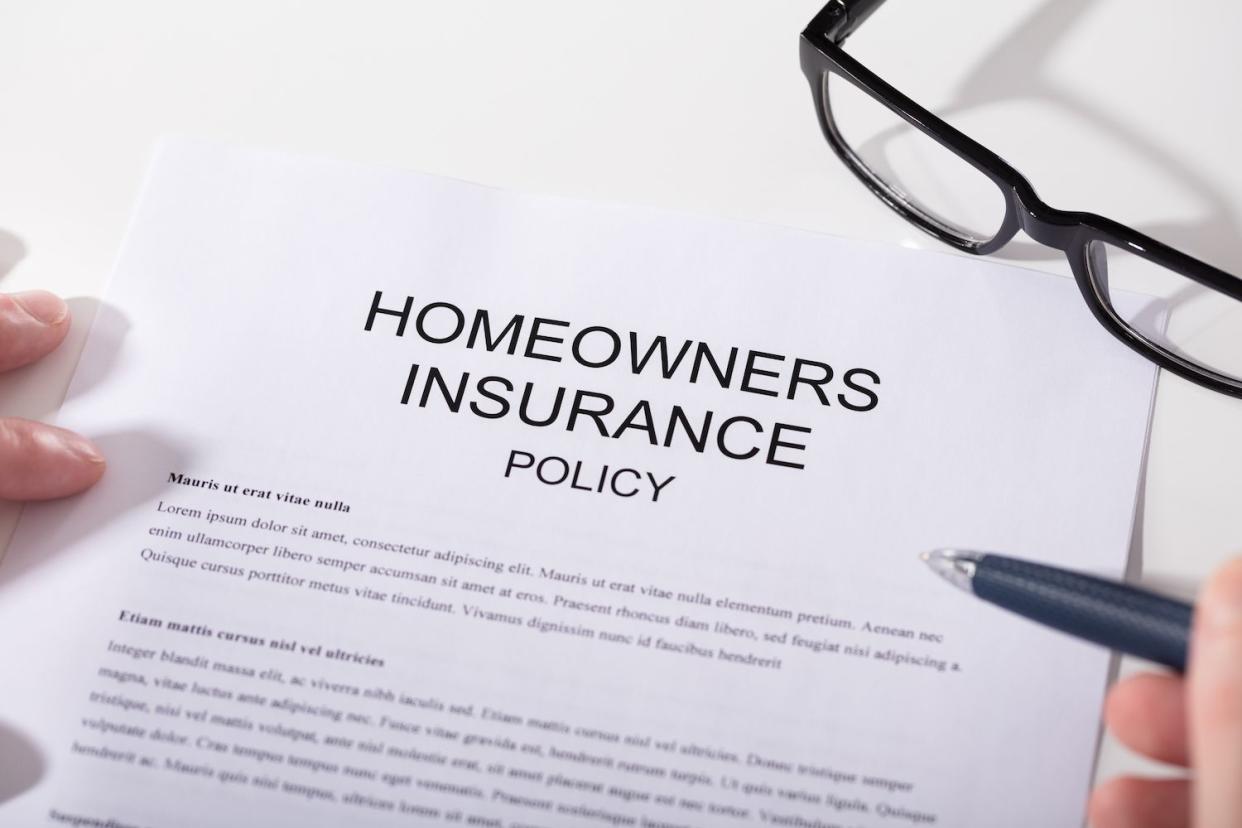
Will your homeowners insurance cover any damage caused by strong winds? What about flood damage? If you don’t know the answers to these questions, it might be time to pull up your homeowners insurance policy. Read it carefully and be sure to contact your insurance company if you have questions. If you decide that you want additional coverage, be sure to explore your options for buying separate policies.
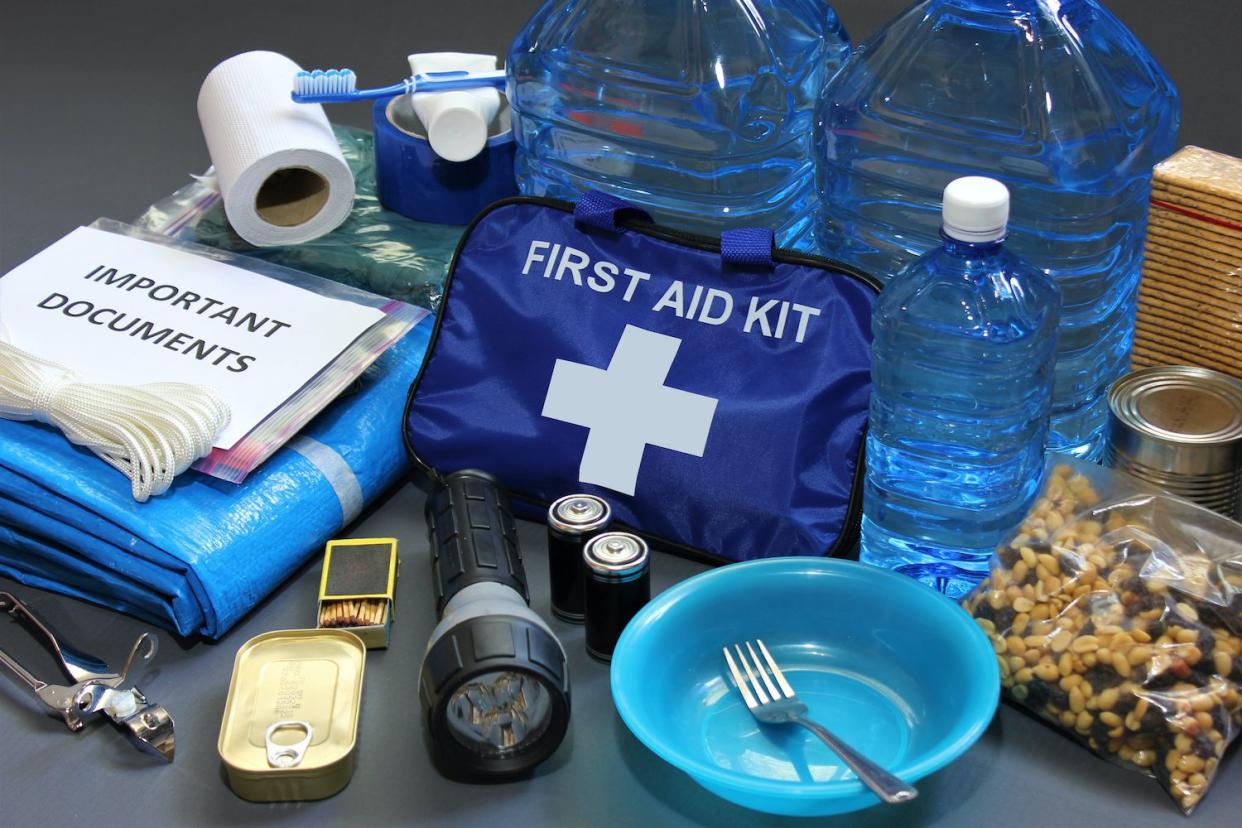
One way to prepare your home for a hurricane is to have an emergency kit on hand. This kit should include personal items and useful products such as:
Soap
First aid kit
Medicine
Can opener
Backup battery for your cell phone
Maps
Important documents and paperwork
Cash
Sleeping bag and blanket
Radio
Flashlights
Matches
You should also get hand sanitizer and disinfectant wipes. Don’t forget to stock up on water, non-perishable food and canned food items that can easily be stored. Peanut butter, dried fruit, dry cereal, granola and protein bars are also good food items to have on hand.
Related: How to prepare your home for wildfire season.
Additional sources: Building America Solution Center, CDC website, CSU Tropical Weather & Climate Research, FEMA, Nerdwallet, Office of Cybersecurity, Energy Security, and Emergency Response and Ready.gov.
